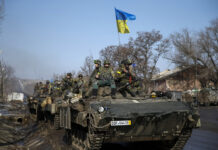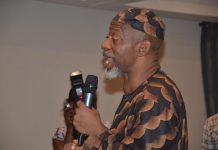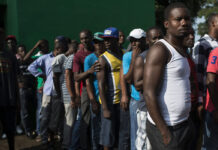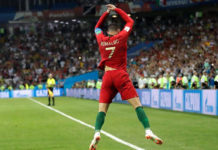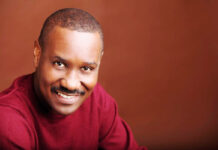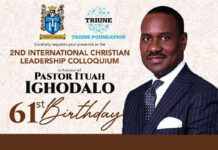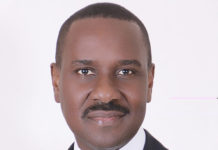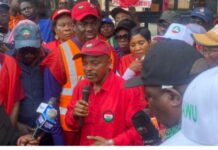Elections have consequences in a democracy. For a stricken country like Nigeria, 2023 general polls will be a make or mar, with electorates having their own fate on the ballot paper.
American social critic, Will Rogers, once described democracy as that ‘form of government you have to keep for four years no matter what it does’. Rogers intended it as a joke, but it turns out to be a true recap of the Nigerian experience in the last 23 years of democracy. Nigeria has had four successive administrations in this Fourth Republic – its longest democratic rule ever. But it often turns out that only the opposition party knows how to run a government. And despite consecutive poor leadership and maladministration across the board, the citizenry has remarkably stomached them all. The result is a country reeling on all fronts! Perhaps that patience is fast waning too. Now gaining currency is the general interest in who leads the next administration.
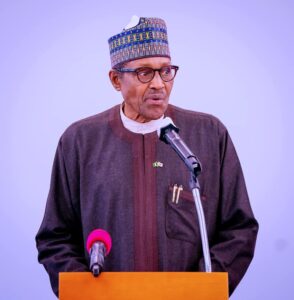
But beyond the next president or candidates making long-winded speeches at town halls and rallies, there has to be credible electorates that are just as enlightened about the precarious situation, the right set of officeholders they can support to turn the difficult corner, and for once, have a government Nigerians do not have to endure for another four odd years.
A country in dire straits
There is a reason the entire public is upbeat about the next election. Following the end of military rule in 1999, the Fourth Republic has rarely offered Nigerians a fair deal. The last seven years have been the most horrendous for most Nigerians. Recall that in 2015, Nigerians rallied behind the All Progressives Congress (APC) and its ‘change’ mantra to elect President Muhammadu Buhari as a rebuke of the maladministration etched by the incumbent Goodluck Jonathan and his People’s Democratic Party (PDP). It was the first time a party in power and a sitting president had failed at the polls and expectations were very high. But barely two years at the helm, even Buhari’s loyalists were scandalised by the enormity of ineptitude on parade.
There are three general yardsticks to measure the performance of any administration. They are in the areas of security, economy and its temperament for corrupt practices. Mr. Buhari has been dismal in all. As a General in the Nigerian Army and a former Head of State, the choice of Buhari for a country ravaged by insecurity in the pre-2015 elections were only logical. He was expected to revamp and rally the troops as an experienced commander turned Commander-in-Chief and to end the crises forthwith. Rather than stem the tide, insecurity shockingly blew out of proportion. It metamorphosed into banditry, terrorism, kidnappings and killings by ragtag criminals that Buhari’s administration for so long refused to outlaw. Today, they are nationwide masterminding jail breaks, high profile kidnappings and threatening to hold Mr. President hostage someday!
Data from the Armed Conflict Location & Event Data Project (ACLED) shows that Nigeria recorded a total of 80, 000 insecurity-related deaths from 1999 to 2022. More than half (41, 903) were credited to Mr. Buhari’s seven years in power. The economy is also at its wobbly best under this administration. Contrary to the June 2022 claim to Bloomberg that Nigeria is “in a far better place than he (Buhari) found it”, lives of average Nigerians are bleaker and for obvious reasons. Between 2015 and June 2022, the economy has slumped into recession twice. Prices of staple food and basic services have spiked astronomically and beyond the reach of most families. Buhari’s economic scorecard cannot claim to be healthy where a 50kg bag of rice of N10, 000 in 2015 now sells for N45, 000-plus! The Nigerian Living Standard Survey conducted in 2018-2019 showed that 40 per cent of the population or a whopping 83 million people live below the poverty line of N137,340 ($381.75) per year. The National Bureau of Statistics’ (NBS) latest Multidimensional Poverty Index estimated that a mammoth 133 million out of 216 million population are languishing in poverty – in deprivation of healthcare, education, living standard, employment and security.
Amid incessant naira devaluation and seemingly intractable foreign exchange liquidity crisis, multiple industries have closed down over surging cost of energy and production. The consequence is about 37 per cent of Nigerians out of jobs according to the NBS. Not done, the country is falling in revenue earning and literally borrowing to meet critical obligations. In seven years, Nigeria’s total debt profile has climbed from N12.12 trillion to N71 trillion as of Q4 2022. Last year, debt-servicing to revenue ratio hit an abysmal 100 per cent and in a country where 80 per cent of pumped crude oil is stolen! Those stats smirk of the administrations’ temperament for sleaze and corruption acolytes. On one hand, the administration dissipated feeble effort to recover loot and bring some scapegoats to justice. On the other hand, it breeds a new clique of kleptomaniacs that freely feed fat on the commonwealth, while letting convicted ex-governors off the hook!
In 2021, the Corruption Perception Index (CPI) ranked Nigeria the lowest ever, just as the U.S. Department of State on March 20, 2021, described the scale of corruption in Nigeria under President Buhari as “massive, widespread and pervasive”.
No longer at ease
Whichever way you look at it, the country is ravaged, broke and in the mud. The next administration, irrespective of who becomes the president, already has an uphill task (see section on Business & Economy, p….). To add to that huge burden of leadership is a vast population of restless and deprived people that will not be as patient this time. It is not a coincidence that Nigerians, especially the youths, are beginning to find their voices and angling for a fresh start in 2023. The 2020 EndSARS demonstration has reawakened the people power in Nigerian youths to scare office holders and force a drastic change. Today, the seething resentment is manifest in political awareness and mass mobilisation in a manner unusual of the political landscape. At the just-concluded Continuous Voter Registration (CVR), the Independent National Electoral Commission (INEC) recorded an additional 12.29 million new voters and 76.5 per cent of them aged 18-34 years. The influx brings the number of eligible voters to 93.5 million.
Albeit apathy has always greeted past elections. Of the 67.4m registered to vote in 2015, only 43.6 per cent showed up. The winner secured only 15.4m of the total. The 2019 numbers were even worse. It had 84m eligible voters, of which only 35 per cent turned out. Most recent off-cycle elections in states were not better. Amid insecurity and apprehensions in the buildup, Osun had 42.37 per cent of the electorate, compared to Anambra (10 per cent), Edo (25 per cent), Ondo (32.8 per cent) and Ekiti (36.74 per cent). But the 2023 presidential election may just be different. And if the social media mass-movement of the Obi-dients will find good representation on Election Day, then a frenetic election and a final outcome that is too close to call may be on our hands. (See analysis on major candidates on p….)
Beyond mere emotions or populist agenda
Ancient Greek philosopher, Aristotle, once described democracy as the government of the mob (majority). Yet, politics is too important to be left to politicians and ‘mob-rule’ alone. Here is Aristotle’s dilemma with democracy: how many of us will fly in a plane whose pilots were recruited through the ballot system? Or come under a ‘surgeon’ only qualified by simple majority votes of non-professionals? If none, how come countries continue to brave the odds of ‘mob-rule’ to elect public officeholders that will manage the affairs of all, including pilots and surgeons? There is no denying the fundamentals of modern democracy in promoting freedom, equality and rule of law, but the real people need to get involved in the leadership recruitment process.
Perhaps, there is truism in the words of Joseph de Maistre that the people get the leader they deserve in a democracy. That is, beyond the game of numbers or mob-rule, there is always an alignment of character and conviction between electorates and the elected. Indeed, it begins with the recruitment process from top to bottom – not only of the next president alone. The president’s performance in office is just as important as the quality of lawmakers that will either support or frustrate policies of the executive. It is the same for other tiers of government in a federal system. Therefore, all public offices matter in a democracy. Clearly, a country in an age of turmoil and existential doom should look beyond the tragic purveyors of its decadence and avoid getting too sentimental in their choices. The two dominant political parties and several of their aspirants have failed the country woefully and should be undeserving of patronage in a new Nigeria project.
While it is the right for all Nigerians of age to vie for public office and be voted for, the country needs a breath of fresh air across the board. It needs leadership that knows, shows, and can go the whole hog with the Nigerian masses to fix the country. Nigeria needs a new set of leaders that understand the problems, clear-headed, strategic and bold enough to completely solve two or three within a tenure. Premier of the Old Western Region, Obafemi Awolowo, was exemplary in having two main objectives: free & compulsory education and welfare for all in the region. It was a massive success in the Southwest. But it takes people of sound character traits – credible, trustworthy, and consistent – to lead such an agenda. Credibility is the hallmark of leadership, and trust is only earned. The question is: where are such personalities that can be acceptable to most Nigerians, irrespective of age-long biases of tribe, religion or party lines?
Nigerians should as well be asking their candidates to enumerate specific plans in ending Boko Haram insurgency, banditry, kidnapping, and sectarian violence. What is the agenda for perennial dependence on oil amid zero per cent refining capability? What of erratic power supply and the current mess of a privatisation? Would the candidate restructure the country along the path of true federalism, regionalism, and unbundle the constitution to allow state police? These and more are real issues of the country and our collective fate. A new Nigeria needs intrinsically good men of value and altruism that the people can trust and rally behind in the arduous task of rebuilding from the rubbles and upturning despondency into hope.
Will the 2023 elections hold?
The nagging question ahead of the February & March polls is the likelihood of the elections not holding on schedule. Conspiracy theorists are already making calculations based on parameters of insecurity. They cannot all be ignored.
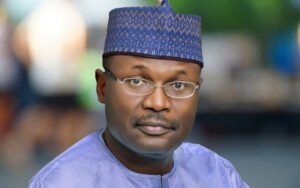
Last November, terror alerts and alarm bells blared in high decibel across all foreign missions in Abuja, leading to mass evacuation of all non-essential staff from Nigeria. Countries like the United States, United Kingdom, and Canada all issued travel warnings to their nationals not to visit most parts of the country for safety reasons.
Two questions emerged from that episode: first, was there actually a terrorism plot to heighten tension just before election, which got busted and leaked to foreign missions that would not keep quiet on the danger? Or, on the flip side, was it actually a false alarm, laced with similar intent, to portray the entire country as grossly insecure to hold a general election for power transition? Either way, those theories are very weighty. Fact is that haters of democracy are already at work. Some have gone to court with the plan to oust the INEC Chairman, just to truncate the deployment of electronic voting and BVAS in the coming general elections. Some are setting INEC offices and PVC warehouses ablaze, to disenfranchise willing public and further heighten tension. Lest we forget, Chief Robert Clarke (SAN) warned that the 1999 Constitution, as amended, empowers the president to extend his tenure by six months, “in the first instance”, to fix insecurity!
Nonetheless, the onus is on Nigerians to insist on fidelity to the general elections’ schedule and the transition programme as mandated by the same constitution. With the benefit of hindsight, President Goodluck Jonathan commanded the armed forces and conducted elections even in the volatile Northeast region in 2011 and 2015. This time, there should be no reason merchants of crisis be allowed to fuel rumours of war that can derail the 2023 transition agenda. President Buhari owes the country the duty of security, free and fair conduct of the general election on schedule. Without a doubt, the road to the 2023 general elections will be daunting. However, it is incumbent on Nigerian masses to pay keen attention to the leadership recruitment process and stay vigilant. Nigerians, in their numbers, should be resolute in active participation and citizens’ engagement with the political process. It is never too late to have an eye on credible personalities that can lead a new Nigeria and rally behind them. Like Plato warned: “the price good men pay for indifference to public affairs is to be ruled by evil men.”
